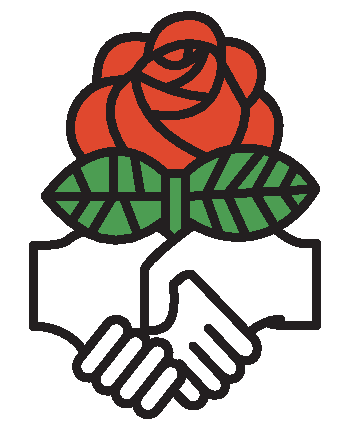Equal Pay, Working Conditions and Informal Work
Mexico City, Mexico, 01 June 2013
Declaration
Over the past forty years, the massive influx of women into the labour market has been slowly dismantling the covenants that established the “specific” roles of women and men.
Nowadays, men are no longer the sole providers: in a growing number of families women are responsible for maintenance or are the ones earning the higher salary.
Unfortunately, this situation is not reflected in the domestic environment as men have failed to take on their fair share of household chores and childcare, meaning that women are having to work double or even triple working days. As a consequence, women are forced to dedicate more time to domestic work, which restricts their involvement in the labour market, putting them at a disadvantage compared to men and limiting their financial autonomy.
Furthermore, when women enter the job market, they find that the conditions and opportunities for development are not equal because they operate in conditions of vulnerability, wage inequality and occasionally informality, in addition to facing barriers that stop them progressing and being trained.
There is also a strong occupational segregation: approximately 80% of women work in the service sector, predominantly in social work, healthcare, retailing, private domestic service, amongst others, which are poorly paid and within which the same work patterns and gender roles are repeated.
This segregation stems from the enormous amount of prejudice that exists about the work that women and men should do, resulting in the limited presence of women in predominantly male sectors.
As a result, there are many women working in a small number of occupations and the more these occupations have become dominated by women, the more devalued they have become, both socially and economically, as can be seen in careers such as nursing and teaching.
Improving the employment situation of women, both in domestic work and outside the home, is an outstanding issue on the international agenda, particularly since paid work is the only way for women to achieve economic autonomy and therefore independence and freedom, which contributes significantly to empowering them to make decisions.
Another major problem in the labour market is the wage gap, which is determined by the way in which women access the labour market, where a series of factors and actions generate inequality and discrimination, mainly towards women.
One of the factors that generates the greatest inequality and fosters the wage gap between female and male workers is the limited involvement of men in domestic chores and childcare. As a result of this situation, women continue to be the only ones responsible for these tasks, which prevents them using their time for non-domestic work and restricts their development.
Another factor is occupational segregation. Women have entered areas and grades of work that are less valued and therefore less well paid. Furthermore, work culture nowadays requires total dedication to work, with extended hours that greatly affect women, because of the need to balance work and family life. Women therefore tend to apply for part time work, in order to combine their tasks, and this affects their level of remuneration.
The prevailing culture in the workplace and the lack of opportunities for women result in informal work being performed mostly by women. In times of crisis, such as the one that has been affecting the whole world since 2008, the number of people joining the informal employment market undoubtedly grows rapidly, but when these figures are broken down we find that most of them are women.
It is vital to note that people working in the informal labour market lack social security, benefits, child care and a regular salary with which to cover their basic needs, in addition facing hostile and corrupt environments on a daily basis.
An important set of international treaties and conventions exists that require the international community to implement actions to eliminate any form of discrimination and violence against women in employment. Article 11 of the CEDAW states that “… States Parties shall take all appropriate measures to eliminate discrimination against women in the field of employment in order to ensure, on a basis of equality of men and women, the same rights”.
However, despite the international instruments signed and commitments made by different countries, millions of women continue to be discriminated against and violated in the workplace, perpetuating gender inequality.
The Socialist International Women (SIW) therefore calls on Governments and the Member Parties of the Socialist International, as well as the NGOs with similar values to those of SIW to:
Promote studies on the situation of women in the economy, in order to promote policies and affirmative action to close the gender gap and advance towards substantive equality in access to permanent employment, remuneration, protection, promotion and management positions;
Implement gender-sensitive policies aimed at creating jobs to strengthen the economic role of women;
Adopt new patterns of work that promote shared responsibility in work and family life;
Eradicate sexist and discriminatory practices in the workplace, such as bullying and sexual harassment, by introducing policies to prevent, identify and punish these practices;
Promote the training of women in non-traditional jobs and occupations in order to expand and improve their employment options and abilities, as well as foster technical training in the workplace that will allow them to achieve promotion and career development;
Generate alternatives for protecting maternity, remuneration and social security for female workers in the informal employment sector;
Promote gender equality in leadership positions in companies, public bodies and social workers’ organisations;
Ensure that women have access to the labour market on an equal footing by means of policies that reduce segregation in occupations and jobs; and
Progress towards closing the wage gap, to ensure that women can achieve equal pay.
_______________

